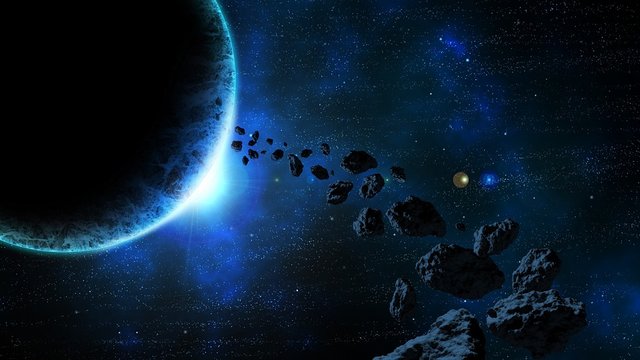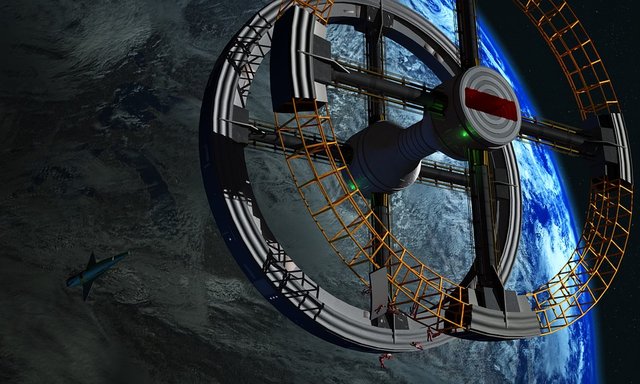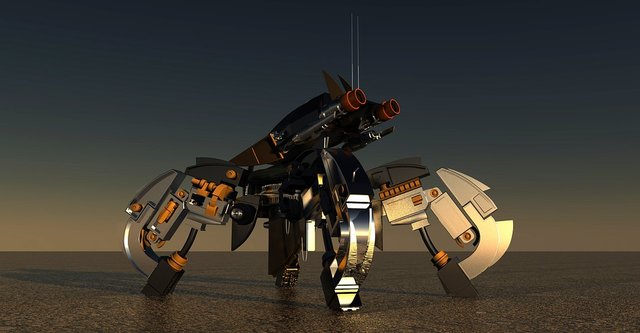On Elon Musk and Post Scarcity Socialist-Anarchism

I've had some thoughts filtering down through the old analog data processor about the idea of post-scarcity.
Is it possible, or a pipe dream? If possible, how would humanity's political and economic systems change to conform to a reality in which every possible resource was super-abundant?
Much of this pondering and speculation came about in response to Elon Musk's tweets of last weekend, devoted to educating fans and detractors alike on his political-economic worldview, which he paradoxically describes as:
..socialist. Just not the kind that shifts resources from the most productive to the least productive, pretending to do good, while actually causing harm.
I say "paradoxically" because the thing he says is not done by the kind of socialist he is, is exactly the thing that is done by 100% of socialist government policies, and supported by 99% of real-life modern socialists.
But I do think I understand what he means, because he left another clue in a separate tweet:
If you must know, I'm a utopian anarchist of the kind best described by Iain Banks.
Ah. So what we are dealing with here is a post-scarcity anarchist. A futurist who fantasizes that in the far flung future, after man has conquered the stars and AI has evolved to meet all of our needs, we can finally be free of the constraints of having to provide for our own livings.
(If you're not familiar, this idea has been explored intelligently and passionately by many works of science fiction, including the entire Star Trek franchise and the Culture series by Iain Banks (alluded to in Musk's tweet.)

The basic gist of it is:
- Presumably, humanity will one day have developed the technology necessary to travel through the galaxy and to colonize other planets, and to build artificial habitats in space.
- Artificial intelligence will presumably also be developed that will enable humanity to achieve all of these great feats.
- Space is full of resources. All of the resources that are considered precious on Earth due to their scarcity are super-abundant in space. For instance, a single asteroid might contain an amount of silver ten times greater than the entire amount that has been mined in all of Earth's history.
- With such super-abundant resources--and intelligent machines to do the hard labor of extracting them--consumer goods will inevitably become so cheap to produce as to render the capitalist model pointless. (Think of simple plastic bodied ball point pens. They used to be significantly more expensive to produce in the early 1900s, but now they are so cheap and abundant that they are often given away by businesses. This is partly because the materials to produce them have become less expensive to procure, and partly because it benefits the business owner spend a small amount per customer, offering something as a "free gift" that also happens to do some marketing for the company. Ignore the second explanation for the super-abundance of ballpoint pens for the time being and let's focus on the first.)
- In this post-scarcity age, every person will be able to have their needs provided for free, due to the super-abundance of raw materials and the unlimited workforce composed of intelligent machines. No one will have to work to get their needs met. People will be able to devote their lives to the creation of art, to the exploration of ideas, and to the pursuit of happiness.
- Since there will be more than enough for every human to live more than comfortably, the concept of private property (as distinct from personal possession) will be rendered obsolete. Who needs to own a piece of land, a habitation unit, a hover-car, a space yacht--when all of these and more are available in abundance for anyone at all to use as they wish? So the outmoded concept of private property will fall to the wayside in favor of communal property, allocated (presumably) by AI, because collecting, analyzing, and acting on data is what they do, and they do it better than any human.
- With super-abundance of all resources, and the elimination of private property, most types of human conflict will go away, too. So no more wars, no more need for a national (or planetary) defense. And all of our needs will be supplied by the super-abundant universe in cahoots with artificial intelligence. Therefore, there will be no need for socialist redistributive policies. So right there you've answered the major objections to anarchism from both the right and the left. And that's how the post-scarcity socialist society becomes anarchist. There is simply no need (in the minds of most people) for a state any longer.

For a long time, I've been highly suspicious of these claims that the future will be free from the constraints of scarcity and humanity will evolve into a race of educated pleasure-seekers, cared for by our robot guardians. But I do applaud Musk's commitment to actually doing things (a lot of things) to encourage this fantasy toward reality.
But to explain why I'm so skeptical, let's take an example of something that is already super-abundant on Earth, here and now: water.
Now, water can only be considered super-abundant when you take into account its planet-wide reserves. As a planet, Earth is super-abundant in water. But for specific locations on earth, the relative availability of water varies widely. That is certainly analogous to any resource, mineral or otherwise, that exists in the wider galaxy: overall, it may be super-abundant, but not every location in the galaxy is in close proximity to the sources of raw material. There are wide gulfs of empty space in between the different resources and the locations where human civilizations will form.
So, in the case of water, let's ask ourselves if its overall super-abundance has resulted in a socialistic economy of water-sharing. In some places, it has. Cities and municipalities in water-rich regions often use taxes to subsidize water and sewer services, making water for drinking and household use extremely cheap. In many restaurants in the developed world, tap water is offered free to customers. And in water-rich rural areas where people get their water from wells and springs, they are tapping into a vast underground water resource that is "shared" commonly by all in the community. The only expense involved for the home owner is the initial drilling of the well and occasional maintenance after the fact. There is so much water available that no one worries about how much their neighbor is using.

But this is not the universal reality of water accessibility on Earth. In water-poor areas, people often have to pay significantly higher prices for water. They may have to travel considerable distances to obtain water. They have to conserve the water they use, making sure that every drop counts. Even on a planet that is 70% water, there are places where the day to day reality of the inhabitants is water scarcity.
So why should we assume that things would be any different in post-scarcity world? Okay, sure, maybe there's a meteor that contains enough titanium to satisfy the entire intergalactic civilization's needs for the next hundred years. But...it's thirty light years away from the nearest inhabited planet, and five thousand light years away from the farthest reaches of civilization. How is this different from the situation with water on earth, apart from the fact that the distances that must be breached to bring a resource from a meteor to an inhabited planet or artificial habitat are far vaster?
And those lightyears are not even the most difficult hurdles in the way of post scarcity resource allocation.
Even in some countries with abundant water supplies, such as Brazil, many people face significant challenges in accessing clean, potable water. These are poor countries where government has taken on the responsibility of providing water to its citizens, but often the water access exists only in cities, and even then only in the more well-off areas. Poorer people, or people living in more remote areas, often pay black market operators for water at highly inflated prices. The culprit here is socialization of the water supply. When water distribution is subsidized by taxes and centralized in the hands of the government, there is little incentive for the provider to make the necessary infrastructure improvements that would increase access to people in remote areas or not connected to a water main.

Ah! I hear some of you saying. This is where your analogy between water distribution on Earth and resource distribution in the Post Scarcity Intergalactic Civilization breaks down! There wouldn't be a government to centralize resource distribution!#
True; in our far future post scarcity world, there is supposedly no government per se, but still, in the absence of market distribution, there must be some kind of resource allocation system--and, as speculated above, this would probably be run by an A.I., and be therefore centralized.
Think about it. Let's suppose that you live in our far future society and you have used your proliferate free time to invent a widget that many other people want and need. How do you go about manufacturing and distributing it? Well, there are super-abundant resources scattered across the galaxy, so you should have no trouble gathering the materials for mass production, right? But...extracting those resources requires space travel and advanced machinery. You'll need a lot of those free-labor intelligent machines to do the mining and refining of the base materials. How do you get them to go to work for you?
In a capitalist society, you might have saved enough capital to invest in a company to produce your new gadget, or you might seek investors to make your company dream a reality. Your company might contract with another company that already had all of the necessary machines and specialized drilling equipment to extract your resources from an asteroid or whatever, and that company would probably pay another company to deliver the unrefined materials to a factory, perhaps on an uninhabited moon, where more machines would turn the raw stuff into the capital goods you require. Then your company would take those goods and turn them into gadgets, perhaps produced by more machines on an assembly line on your own planet.
But in the post-scarcity socialist anarchy, there wouldn't be any companies. As far as I can gather from the fictional and theoretical representations I have encountered thus far, there would be self-aware A.I. that do all of the drilling, refining, building, manufacturing, etc. There are only two ways that could work. Either the A.I. have confederated themselves into an oversight body, and do all of their production activities as part of a unilaterally controlled production and distribution scheme (in which case, the A.I. are definitely the gatekeepers of resource allocation), or the A.I. are decentralized and working on their own diverse projects for their own diverse purposes.

If the first option is true, then in order to mass produce your widget, you'll need to petition the A.I. gatekeeper, who will then decide whether your invention is worth producing and, if so, take the reins on the whole project, assigning the work of gathering and refining materials and distributing the finished product to its other A.I. minions.
There is no reasonable indication that an A.I. resource allocator would be any better than a central economic planning body composed of humans. This is because effective and efficient resource allocation does not depend on intelligence. It depends on market knowledge. No matter how intelligent a human governing body or an A.I. gatekeeper is, no matter how advanced its systems, there is no way for it to track all of the available resource supply or, especially, to anticipate all of the needs of all of the humans (and other A.I.s) at all times, across a vast civilization. I doubt if an A.I. could even effectively allocate all necessary resources to a city the size of Des Moines.
The reason markets work so well at providing resources to people is because they are composed of millions of different intelligences; all with different wants and objectives and competences; all observing different aspects of the market ecology; making educated guesses as to what is needed, when, and where; investing capital to connect resources to needs and desires; and incentivized by the profit motive. Not all of them will be right. Some educated guesses will turn out to be ill-thought, some capital investments will turn out to be wasted. Some speculators will fail, and those who fail consistently will be driven out of business. It's a self-cleaning system--one whose results cannot be reproduced by a central gatekeeper.
And what if the second option turns out to be the correct one? What if the post scarcity A.I. are decentralized, each working on their own projects for their own purposes? Then you're going to have to convince one or more of these A.I.s to help you produce your widget. And chances are, since they are intelligent, self-aware beings with their own goals and priorities and dreams, they are going to want something in return for choosing your project over all the other things they could be doing. It almost seems like a recipe for capitalism.

But back to water.
Privatization of water distribution has increased access to potable water to many millions of poor people in countries like Bolivia, Gabon, Cambodia, and the Phillipines. People who previously had only sketchy and expensive access now enjoy water abundance at low prices. And even in the developed world, where the majority of urbanites have super cheap water available at their kitchen sink, city dwellers overwhelmingly choose to buy drinking water at more expensive prices from private companies. Why? Because socialized city water tends to be contaminated and lower in taste quality than the bottled kind.
The data is in. Capitalist water provision works more efficiently than socialist water provision. If this is true for Earth's super-abundant resource, then why should it not be true for super-abundant resources in a far-future intergalactic civilization?
The two things I like best about Elon Musk are his bright-eyed optimism about humanity's potential, and his drive to build the ladders that allow us to climb to that potential. He is using the best tool at humanity's disposal--capitalism--for constructing those ladders, with a vision of someday transforming civilization into a post-scarcity, socialist-anarchist utopia. I don't think post-scarcity is possible, or socialism preferable, but I'm glad he is doing it.
Happily for humanity, the technologies people like Musk develop will be what launches capitalism into space. And I, for one, can't wait.

Hi, I'm Starr!
I believe all human interactions should be consensual

Damn, but why you got to shit on Des Moines?
I think, all futuristic utopias are broken about the very essence of human nature. What kind of socialism can there be if we have not overcome pride and greed? The desire to be "better" or "higher", richer sooner or later can take possession of a person, and then he will have no business before socialism and equitable distribution of resources. For one hypothetical idealist, there may be several persons who care only for their own well-being. This also results in economic and logistical difficulties, which makes it virtually impossible for an endless extraction of resources outside our planet, at least in the coming decades.
this idea has been explored intelligently and passionately by many works of science fiction, including the entire Star Trek franchise and the Culture series by Iain Banks
Nope..the two are nothing alike.
Star Trek is stupid.
The Culture is not.
I haven't read the Culture series by Iain Banks. From your comment, it sound like you strongly recommend it over Star Trek.
I recommend the 'three little pigs' over startrek.
In your mental model of the future you need to budget for a defense force to protect the "A.I. resource allocator." Many of us will be working to destroy it and set humanity free.
I've been following the discussion that Elon Musk started on Twitter. Thanks for your detailed thoughts on these ideas!